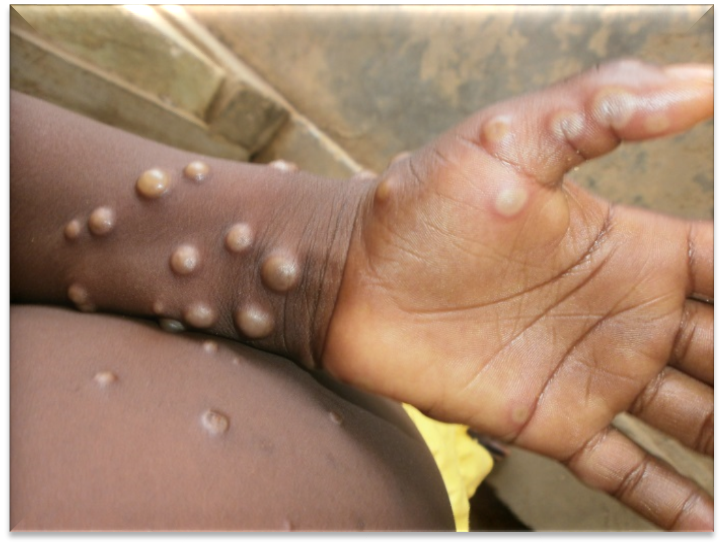“Get Checked. Get Tested. Get Protected.”
The North Carolina Department of Health and Humans Services has expanded the list of higher-risk people who are eligible to receive the monkeypox vaccine to help prevent spread in the state.
Vaccinations to protect against monkeypox are now available for:
- Anyone who had close contact in the past two weeks with someone who has been diagnosed with monkeypox, and
- Gay or bisexual men or transgender individuals who report any of the following in the last 90 days:
- Having multiple sex partners or anonymous sex
- Being diagnosed with a sexually transmitted infection
- Receiving medications to prevent HIV infection (PrEP)
While monkeypox can affect anyone through close skin to skin contact, our data show that currently almost all cases in North Carolina and across the country have been in gay, bisexual and other men who have sex with men,” said NCDHHS Secretary Kody H. Kinsley. “Everyone in our health system across the state should be working quickly to increase use of testing and vaccinating those most at risk so we can contain this outbreak.”
To date, 533 doses have been administered across the state. The federal government has allocated 4,548 doses of vaccine to North Carolina enough to fully vaccinate approximately 2,300 individuals with the recommended two-dose vaccination series. These doses have been distributed to nine local health departments (contact information below) that are offering vaccine and working with other health departments and clinics to ensure availability of vaccine throughout the state. More vaccine is expected in the coming weeks. Vaccine is free and available for individuals meeting the criteria above.
Vaccination after recent exposure may reduce the chance of getting monkeypox and can reduce symptom severity if you do get monkeypox. Those interested in receiving the vaccine should contact their local health department to find out whether they are eligible and to schedule an appointment.
Data shared by NCDHHS indicates more than 60% of monkeypox cases reported so far in North Carolina have been in Black/African American men.
“It’s very concerning to see disparities emerging in our monkeypox cases,” said State Epidemiologist Zack Moore, M.D., MPH. “We are working with our partners to raise awareness of monkeypox in LBGTQ+ communities of color and to making sure vaccines and other resources are reaching this community so they can take steps to decrease their chances of getting monkeypox.”
Earlier this month, NCDHHS released the 2022 Monkeypox Outbreak Response Plan (Spanish) encouraging people to get checked, get tested and get protected.
- First, get checked. If you’ve had skin-to-skin contact — including sex — with someone with monkeypox, see a health care provider. If you have bumps, sores or a rash that looks like blisters or pimples, see a health care provider. Call your local health department if you don’t have a provider.
- Second, get tested. Testing is widely available and encouraged if you have symptoms of monkeypox. Samples must be collected by a health care professional. NCDHHS recommends providers be vigilant and test any patient with a suspicious lesion or sore.
- Third, get protected. Vaccines are available for those who meet the criteria above. These criteria will be reassessed and likely expanded as more vaccines become available over the coming weeks. Most people with monkey pox infection get better on their own. Therapies are available and may be recommended for people with a high risk of severe illness.
“Health care providers are the key link in getting checked, getting tested and getting protected,” said Elizabeth Cuervo Tilson, M.D., MPH, State Health Director and NCDHHS Chief Medical Officer. “We want to emphasize that testing is widely available, and anyone with symptoms should be tested.”
More information on testing, vaccines, treatment and where to find additional resources and contact information for local health departments is below.
Testing
There is plenty of testing capacity. The NC State Laboratory of Public Health, many commercial labs and some health systems have testing capability, and more labs will have testing capability soon. Health care providers can send tests to the State Laboratory of Public Health or a commercial lab. Every healthcare provider should have a plan for getting their patients tested for monkeypox when they need it.
Vaccines
Vaccine, known as Jynneos, has been allocated by the federal government and distributed to nine local health departments. The locations are sharing vaccine with other health departments and various clinics within North Carolina to ensure availability of vaccine throughout the state. Vaccine is free and available for individuals meeting the criteria above. Vaccination after recent exposure may reduce the chance of getting monkeypox and can reduce symptom severity if you do get monkeypox. People interested in receiving the vaccine can schedule an appointment through their local health department or one of the nine LHDs listed below. Currently, pharmacies are not able to administer the vaccine.
Treatment
Most infections last two to four weeks, and most people with monkeypox get better on their own without treatment. Antiviral therapies are available for those who are more likely to be severely ill, including people with lesions in the mouth, eye area, genitalia or rectum, and people with weakened immune systems. Monkeypox is rarely fatal, and no deaths have been reported related to this outbreak worldwide. The North Carolina interim therapeutic guidance for physicians can be found here. North Carolina physicians who wish to order tecovirimat can do so here.
For more information on symptoms and transmission of monkeypox, visit the NCDHHS Division of Public Health PH website here.
Additional Resources
NCDHHS is maintaining additional resources on its monkeypox web page. A count of North Carolina cases is now displayed at the top of the page. A communications toolkit is available, as well as guidance for providers and local health departments.
Contact Information
The health departments where vaccine is currently located are:
- Buncombe (828) 250-5300
- Cumberland (919) 433-3600
- Durham (919) 560-9217
- Forsyth (336) 703-3100
- Guilford (336) 641-3245
- Mecklenburg (980) 314-9400
- New Hanover (910) 798-6800
- Pitt (252) 902-2300
- Wake (919) 250-4462



